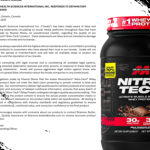Let’s be honest, “leaky gut” sounds like one of those trendy wellness terms that gets tossed around without much scientific backing. But in functional medicine and immunology, increased intestinal permeability is a very real phenomenon with legitimate implications for immune function, mood, inflammation and whole-body health.
This article breaks down the gut-immune connection, explains what happens when things go wrong, and offers a practical framework for getting back to balance.
What Is Leaky Gut?
Your small intestine is lined with a single layer of epithelial cells that forms a barrier between your internal body and the external environment. These cells are sealed together by tight junctions, or proteins that regulate what can pass through the lining into your bloodstream.
When these tight junctions become compromised, the gut becomes more permeable than it should be, allowing things like toxins, bacteria and partially digested food particles to slip through. This condition, commonly referred to as “leaky gut,” is clinically recognized as increased intestinal permeability.
Once these particles escape the gut and enter systemic circulation, they can trigger immune responses that contribute to systemic inflammation, allergies, food sensitivities and even autoimmune reactivity.
What Contributes to a Leaky Gut?
Leaky gut doesn’t happen overnight. It’s the result of a combination of dietary, environmental and lifestyle stressors over time. Common contributors include:
• Chronic Stress
Cortisol, your primary stress hormone, weakens gut barrier integrity and lowers secretory IgA, your first line of immune defense in the gut lining.
• Poor Diet
High sugar, processed foods, alcohol (to name a few things that bring you joy) increase gut inflammation. Gluten and certain food additives can increase the production of zonulin, a protein that disrupts tight junctions.
• Microbial Imbalance (Dysbiosis)
When beneficial gut microbes are outnumbered by opportunistic or pathogenic species, the gut lining becomes more vulnerable to damage.
• Medications
NSAIDs (nonsteroidal anti-inflammatory drugs), antibiotics and proton pump inhibitors (PPIs) can all impair gut integrity by reducing protective mucus and damaging epithelial cells.
• Infections
Bacterial, viral or parasitic infections in the gut can directly harm the epithelial layer.
• Toxin Exposure
Environmental toxins like glyphosate, BPA and heavy metals have been shown to interfere with tight junction function.
• Nutrient Deficiencies
Deficiencies in zinc, vitamin A, vitamin D and glutamine (all critical for mucosal healing) can impair the gut’s ability to repair itself.
The Gut-Immune Connection
Roughly 70 to 80 percent of your immune system is in the gut. The gut lining is one of the most immunologically active surfaces in the body, and the immune cells in this region are constantly evaluating the safety of what you ingest.
When the gut barrier is breached, the immune system starts responding to materials it normally wouldn’t encounter. This can lead to:
• Chronic, low-grade systemic inflammation
• Heightened food sensitivities and intolerances
• Disrupted immune tolerance
• Autoimmune reactivity through a process called molecular mimicry.
And the relationship goes both ways. A dysregulated immune system (through the release of pro-inflammatory cytokines) can further damage the gut lining, perpetuating the cycle of inflammation and permeability.
Signs of Leaky Gut and Immune Dysregulation
Some common signs and symptoms that may point to increased intestinal permeability and immune imbalance include:
• Digestive issues (bloating, gas, loose stools)
• Brain fog and low energy
• Food sensitivities
• Skin problems (acne, eczema, psoriasis)
• Joint pain
• Autoimmune symptoms or flares
• Frequent infections or poor recovery.
A Functional Medicine Protocol for Gut and Immune Repair
Functional medicine uses a systems wide approach to address root causes rather than just symptoms. One of the most trusted frameworks is the 5R Protocol: Remove, Replace, Reinoculate, Repair and Rebalance.
1. Remove: Eliminate the Triggers
• Cut out some of the more common inflammatory foods such as gluten, dairy, processed sugar and seed oils.
• Eliminate alcohol and unnecessary NSAID use.
• Address gut infections using testing and targeted antimicrobials if needed.
• Reduce exposure to environmental toxins and endocrine disruptors.
2. Replace: Support Digestion
• Use digestive enzymes and HCl support to ensure optimal breakdown of proteins, fats and carbohydrates.
• Add bitter herbs and bile-supportive compounds if digestion is sluggish.
• Ensure adequate fiber intake to promote healthy elimination and microbial fermentation.
3. Reinoculate: Rebuild the Microbiome
• Reintroduce beneficial bacteria through probiotic supplementation and fermented foods.
• Feed the good bacteria with prebiotic fibers like inulin, fructooligosaccharides (FOS), and galactooligosaccharides (GOS). • Consider spore-based probiotics for additional resilience in compromised guts.
4. Repair: Seal and Soothe the Gut Lining
Key nutrients and compounds that promote mucosal repair include:
• L-glutamine – A primary fuel source for enterocytes (gut lining cells)
• Zinc carnosine – Supports epithelial regeneration
• Vitamin D3 – Modulates immune signaling and tight junction expression
• Vitamin A – Essential for mucosal immune tolerance and epithelial repair
• Omega-3 fatty acids – Reduce inflammation and support membrane integrity
• Botanicals – Herbs like slippery elm, marshmallow root, DGL (deglycyrrhizinated licorice), and curcumin have mucilaginous, anti-inflammatory, or antioxidant properties that support repair.
5. Rebalance: Support the Gut-Brain-Immune Axis
The nervous system and immune system are intimately linked with gut health. Chronic stress, poor sleep and emotional dysregulation all impair gut barrier integrity.
• Implement nervous system regulation practices: breathwork and vagal nerve stimulation
• Prioritize restorative sleep (seven to nine hours)
• Engage in regular, moderate physical activity
• Maintain circadian rhythm through light exposure and consistent mealtimes
Extra Credit: If you want to dive deeper or build a protocol tailored to your symptoms, I always recommend functional testing (think: GI-MAP, Cyrex Array 2, zonulin, calprotectin, sIgA), and working with a practitioner who knows how to interpret and act on it.
Conclusion: Support the Gut, Support the Immune System
Leaky gut is more than a digestive issue; it’s an immune and systemic health issue. When the gut barrier breaks down, it sets the stage for chronic low-grade inflammation, immune dysfunction and a long list of downstream symptoms.VR
References:
1 Fasano, A. (2012). Leaky gut and autoimmunity: an intricate relationship. Frontiers in Immunology.
2 Söderholm, J. D., & Perdue, M. H. (2001). Stress and gastrointestinal tract. Gut.
3 Parada Venegas, D., et al. (2019). Short Chain Fatty Acids (SCFAs)-Mediated Gut Epithelial and Immune Regulation. Frontiers in Immunology.
4 Rapin, J. R., & Wiernsperger, N. (2010). Possible links between intestinal permeability and food processing: a potential therapeutic niche for glutamine. Clinics.
5 Mesnage, R., et al. (2015). Glyphosate and its formulation Roundup affect gut microbiota and intestinal permeability. Environmental Health.
6 Vojdani, A. (2013). A Potential Link between Environmental Triggers and Autoimmunity. Autoimmune Diseases.
7 Lerner, A., et al. (2015). Intestinal permeability in autoimmune diseases. Annals of the New York Academy of Sciences.
8 Rao, R. K., & Samak, G. (2012). Role of glutamine in protection of intestinal epithelial tight junctions. Journal of Epithelial Biology & Pharmacology.
Brianna Diorio holds a PhD in integrative medicine from the University of Natural Medicine and is a clinical nutritionist with a Master’s of Science in Human Nutrition from the University of Bridgeport. She is also a functional diagnostic nutrition practitioner (FDN), an herbal practitioner through the Herbal Academy, a family herbalist through The School of Natural Healing, a NASM certified personal trainer, and a holistic lifestyle coach from the C.H.E.K Institute. Diorio is the host of the Brianna Approved Podcast, which is a podcast for people who like a holistic approach to real science and clinical research on all things nutrition, botanicals and balance. She currently works as a clinician with her private practice that specializes in alternative health, functional medicine and dietary supplements. Diorio works with a vast array of clients and businesses to educate and improve their health and dietary needs.




